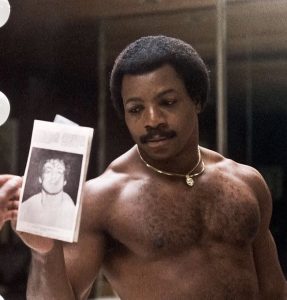As August 28 marks the one year death anniversary of Hollywood actor Chadwick Boseman, Mo Jenkins watched “Black Panther” two weeks ago for the second time and right away made an appointment to get screened for colorectal cancer.
Jenkins’ physician had urged him to get tested. “I wanted to know if I was OK, but I didn’t want to take the test,” Jenkins told NBC News. He added that he had watched Chadwick be a superhero in the film. “A superhero.He looked great. He looked strong. And then . . . he was gone.”
Also Read | Actor Letitia Wright gets injured while shooting ‘Black Panther 2’, hospitalised
“I don’t know why watching that movie this time hit me like it did. But I made an appointment, and did the screening.”
Fortunately, his results were clear of any medical issue. Jensen breathed a sigh of relief. “Totally relieved,” he said. “But the point was to make sure I was OK before it was too late. Chadwick Boseman inspired me to do that.”
Boseman’s death was expected to be a turn-around situation for Black people. Black doctors had hoped it would bring Black men to screen more often for colon cancer.
While doctors claim that more Black men are getting screened, it is still unclear whether overall screening has taken a jump.
Black people are 20% more likely to get colon cancer than any other race and 40% more likely to succumb to it, according to the American Cancer Society.
Furthermore, according to a report from the Dana-Farber Cancer Institute in Boston, “factors contributing to the disproportionately high rate of colorectal cancer in Black people include lower rates of screening, structural racism, social determinants of health and difficulty obtaining available treatment, among others.”
The actor’s death later brought light to the need for 45-year-old and above to get screened for colon cancer.
“Most people, when they think of colon cancer, think of someone being old,” said Dr. Saundra Dalton-Smith, an internal medicine physician in Alabama. “You don’t think of someone who was in their early 40s, like Chadwick, definitely not someone who looked as healthy as he did. So, I think it really helps people to wake up to just how easy it is for this particular cancer to be active and do harm in your body without you being aware of it.
“And I think that was probably the No. 1 thing that came out of his death because a lot of patients did start asking specific questions like, ‘What do I need to look for as symptoms?’ So, awareness definitely increased.” However, the pandemic has offset the influence of Boseman’s death, along with the hesitant approach towards colon cancer testing.
“I’ve seen a lot more people being screened since Covid restrictions were lifted,” said Dr. Timothy Quinn, a primary care physician in the Jackson, Mississippi, area. “But the pandemic changed a lot last year. A lot of people were skipping their doctor’s appointments, understandably afraid to come to the doctor because of factors like being around people in the waiting room. So that slowed down screenings, which never helps.”
Even if screenings increased among Black people, “we’re still on the low end of the spectrum in totality,” Dalton-Smith said. “Chadwick Boseman had this national profile. He was the Black Panther. He obviously raised awareness, but a lot of times in our community, we don’t want to get the screening because we start thinking about the whole invasiveness part of it when it doesn’t even have to be that.”
The procedure is taken as invasive and renders men hesitant towards getting a colonoscope inserted into the rectum for testing.
Nolan-Smith agreed. “The No. 1 thing is, Chadwick Boseman was a kind of pushing point for some people being aware of the severity of the disease,” she said. “The idea now is to use that awareness and let people know that the key deterrent to getting tested — it being invasive — is not something to fear. There are other things you can do that are minimally invasive, like Cologuard, that still are very effective in early prevention.
“We’ve got to a place in medicine, where many of the cancers that used to kill people, can now be treated — if we catch it early enough,” she added. “The problem is, we still have double the death rate in the African American community. And a big part of that is because of not getting the preventative testing. That’s what, a year after losing Chadwick Boseman, we have to get out of it.”






